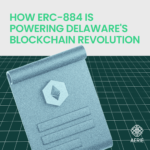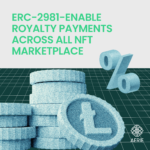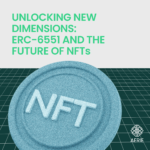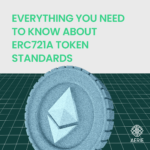“Blockchain Gaming”: The Future of Gaming
The world of video games is a magical realm where people of all backgrounds can unite and create without any boundaries. The immersive nature of these games allows players to transcend geographical, racial, and gender barriers, and construct their own unique experiences by unlocking characters, weapons, and other treasures. The allure of crafting a new identity in another dimension enables users to connect with these games on a deeper level than any other media platform.
However, the current state of gaming applications is a double-edged sword. While these games provide endless entertainment, they operate on a centralized infrastructure, with all in-game assets, user data, and game logic being held on closed systems controlled exclusively by gaming companies. As a result, players invest their time and money into these games only to fuel the profits of corporations. The gaming industry has shown no signs of slowing down, projected to generate nearly $200B in revenue in 2022 alone.
The problem of centralized gaming systems is a complex issue that affects players, developers, and the gaming industry as a whole. These systems rely on closed infrastructure, with all in-game assets, user data, and game logic being held exclusively by gaming companies.
This centralized structure creates a flow of value where players invest their time and money to increase the profits of game developers. This system perpetuates a profit-driven approach that prioritizes revenue over user experience, stifling creativity and innovation in the gaming industry.
The centralized nature of these systems creates a lack of transparency and accountability, which leads to security breaches and hacking attacks that put user data and personal information at risk. These security threats can undermine user confidence in these systems, causing long-term damage to their reputation and viability.
Additionally, the monopolistic control of these systems by a handful of companies limits competition, entrenching their dominant position in the market and stifling innovation. The result is an industry that is less diverse and creative, with limited opportunities for new developers and content creators. To ensure a more open, equitable, and secure gaming industry, there is a need to address the problem of centralized gaming systems and promote a more decentralized approach that prioritizes user experience and creativity.
Blockchain is a decentralized, immutable, and transparent digital ledger that records transactions securely and efficiently. Blockchain technology provides a solution to the centralized problem of gaming systems by creating a trustless and transparent ecosystem that allows users to have ownership and control over their in-game assets and data.
By leveraging blockchain technology, game developers can create decentralized gaming platforms that enable users to interact directly with one another, without the need for intermediaries or centralized authorities. This approach promotes a more equitable and democratic system that prioritizes user experience and creativity, while ensuring security, transparency, and accountability.
The use of blockchain technology provide users with full control over their digital assets, enabling them to transfer, sell, or trade their in-game items in a secure and transparent manner. This promotes the growth of a vibrant and diverse gaming industry, with new opportunities for developers and content creators to thrive.
One of the primary benefits of blockchain in gaming is the decentralization of control, which removes the need for intermediaries or centralized authorities. This approach creates a trustless and transparent ecosystem that enables users to interact directly with one another, fostering a more equitable and democratic system. By removing centralized control, blockchain technology provides users with greater ownership and control over their in-game assets and data.
Blockchain technology is inherently transparent, with every transaction recorded on a public ledger. This transparency ensures that every action is auditable and accountable, promoting a more trustworthy gaming environment. With blockchain, users can be confident that their in-game items and data are secure, and that every transaction is recorded accurately.
Blockchain technology provides a high level of security that is unparalleled in the gaming industry. The decentralized nature of blockchain ensures that user data and assets are stored securely, with no single point of failure. This makes blockchain gaming platforms more resistant to hacking attacks, fraud, and other forms of cybercrime.
With blockchain, users have complete control over their in-game assets and data. This provides users with greater flexibility and freedom to transfer, sell, or trade their assets in a secure and transparent manner. By giving users control over their assets, blockchain gaming platforms promote a more equitable and democratic gaming environment.
NFTs aid decentralization in gaming by providing a unique and verifiable way to represent in-game assets on the blockchain. NFTs are digital tokens that represent a specific asset, such as a weapon or character, and are stored on the blockchain. Because each NFT is unique and cannot be replicated, they are used to represent one-of-a-kind in-game assets that have real-world value.
By leveraging NFTs, game developers can create a decentralized gaming platform where users can buy, sell, and trade their in-game assets in a secure and transparent manner. NFTs can be transferred between users without the involvement of intermediaries or centralized authorities since they are stored on the blockchain. This creates a trustless and transparent ecosystem that empowers users and promotes a more equitable and democratic gaming system.
NFTs enable users to have true ownership and control over their in-game assets. With NFTs, users can be confident that their assets are stored securely on the blockchain and that they can transfer or sell them at any time. This gives users greater flexibility and freedom to participate in the gaming ecosystem, without being limited by the walled garden approach of centralized gaming systems.

